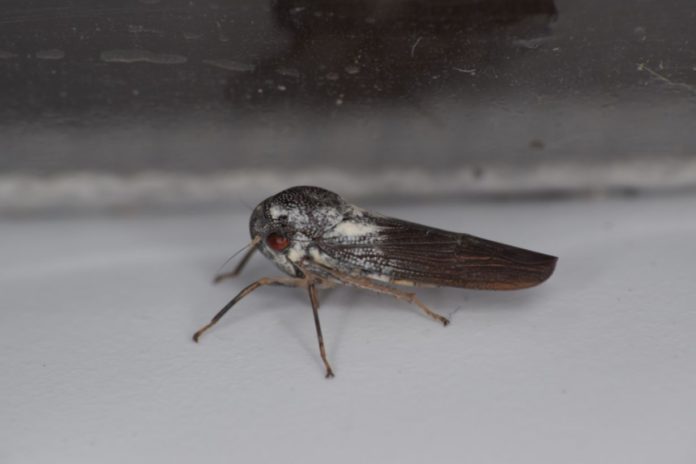A British scientist has identified a new species that belongs to a group of insects that was last seen in 1969.
During field work with students in the rainforest of the Kibale National Park in western Uganda, Dr. Alvin Helden of Anglia Ruskin University (ARU) discovered the new species of leafhopper, which he has named Phlogis kibalensis, and the discovery has been published in the journal Zootaxa.
The new species, which has a metallic sheen, a pitted body, and, like other leafhoppers, unusually-shaped male reproductive organs – in this case, half leaf-shaped – belongs to the Phlogis genus.
Prior to this latest finding, the last time a leafhopper from this rare genus was seen was in 1969 in the Central African Republic.
Leafhoppers are related to cicadas, but they are much smaller, with the male of the newly discovered Phlogis kibalensis species being only 6.5mm in length. Leafhoppers primarily feed on plant sap taken directly from the phloem and are preyed on by invertebrates such as spiders, beetles, parasitic wasps, and birds.
“To find this new species is a once-in-a-lifetime achievement, particularly as it’s closest relative was last found in a different country over 50 years ago,” said Dr Helden, a member of Anglia Ruskin University’s (ARU) Applied Ecology Research Group. “I knew it was something very special as soon as I spotted it.
“Leafhoppers of this genus, and the wider tribe, are very unusual in appearance, and are rarely found. In fact, they are so incredibly rare that their biology remains almost completely unknown, and we know almost nothing about Phlogis kibalensis, the new species I found, including what plants it feeds on or its role in the local ecosystem.
“There is so much still to find out, not just about this species but so many others, including the many species that are still waiting to be discovered. It is incredibly sad to think that some species will become extinct before we are even aware of their existence.
“There are some wonderful places, like the Kibale National Park in Uganda, where wildlife will survive, but outside national parks and reserves, the amount of rainforest that has been cleared in the tropics is devastating. Rare species could be living anywhere, but deforestation means it is inevitable that we will be losing species before we have discovered them.”
Source: Zootaxa
Image Credit: Dr Alvin Helden, Anglia Ruskin University
You were reading: Scientists find a new ‘incredibly rare’ species of leafhopper: its’ closest relative was last seen in 1969
